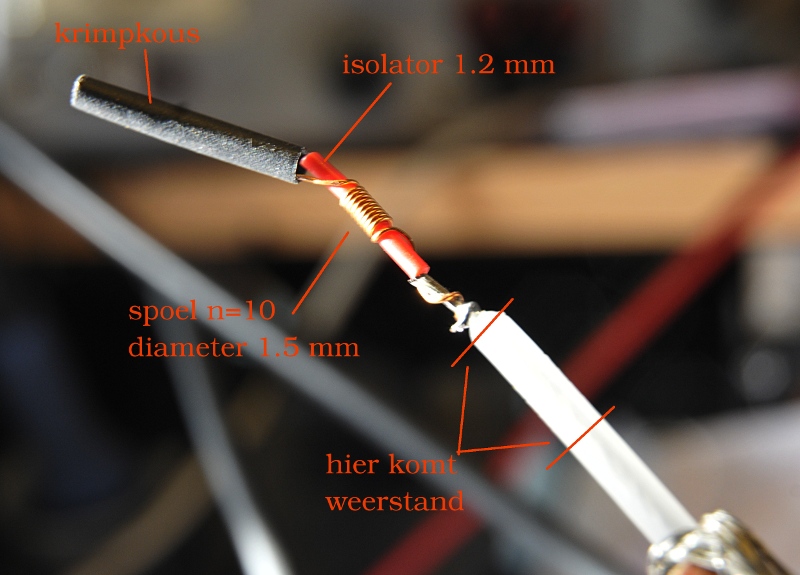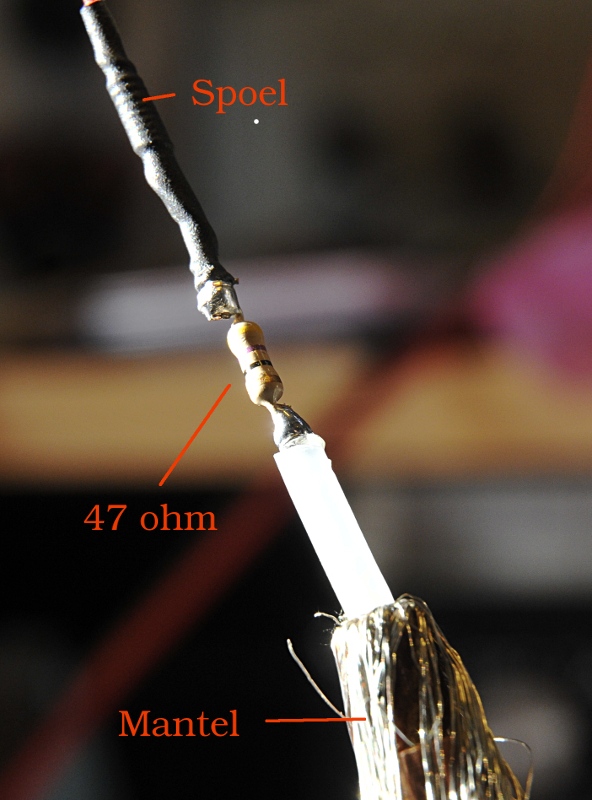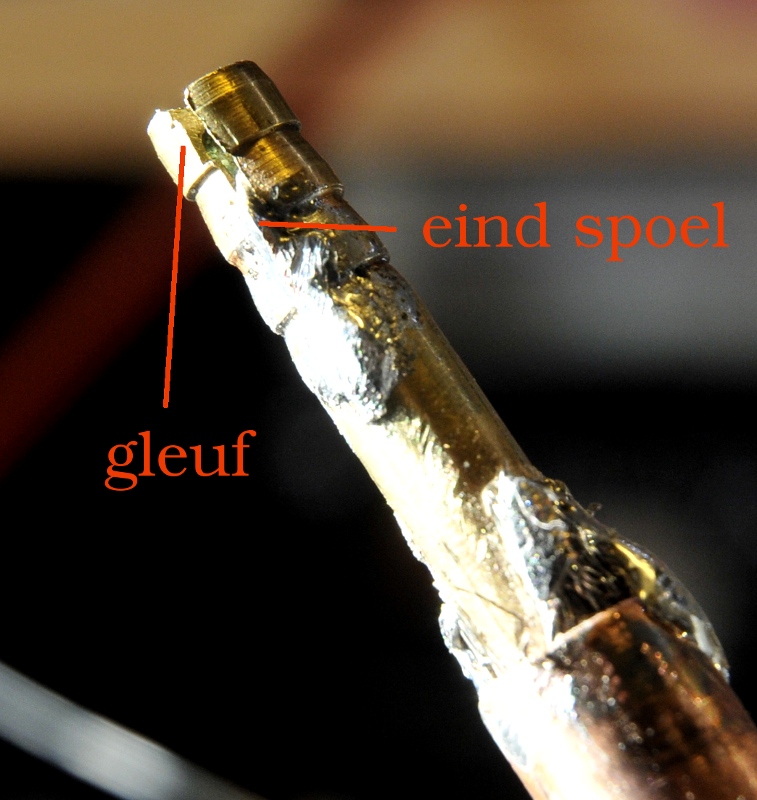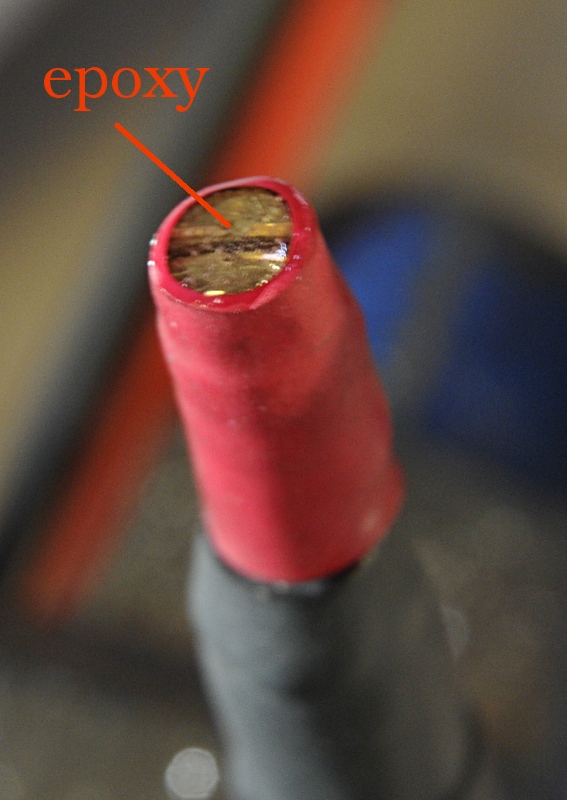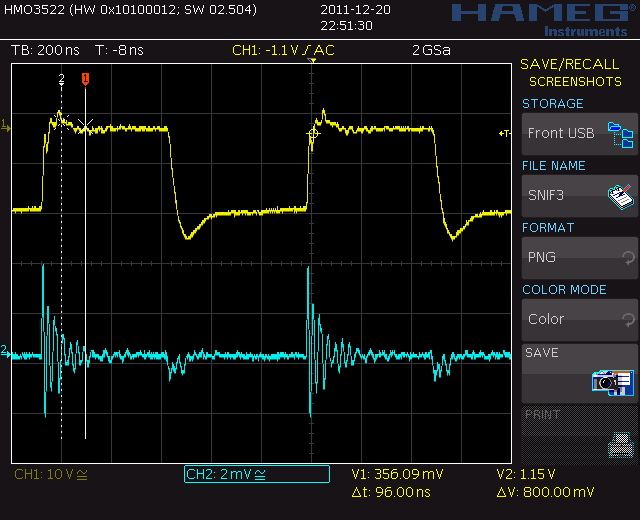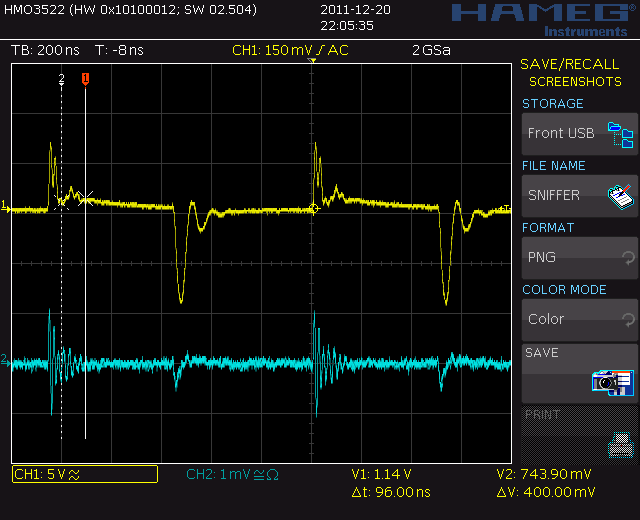A sniffer probe is ideal for searching magnetic field caused by current . ||It is a partly shielded coil. It is useful for looking at current transients, high AC currents (it does not detect DC but it sees current changes like inrush current) through traces, but also EMI. I is not a DC or even AC current probe. You can see it in the pictures of a square wave. You can see a square wave as a sequence of inrush currents.
I stripped a piece of coax. Around the bare shielding II placed an insulator. Around that some metal tubing as shield. The coils is connected to the coax via a 47 ohm resistor. The other end of the coil is connected to the tubing. It used epoxy to isolate the inductor for safety.
Ik heb een stuk coax afgestript. Om de kale mantel heb ik een isolator geschoven. Daaromheen een stukje koperen buis en krimpkous. Aan de binnenader zit een 47 ohm weerstand en daarna om een stukje kunststof als steun een spoeltje. Dat zit met epoxy geisoleerd van het messing neusstuk. In dat stuk zit een gleuf en het eind van de spoel zit daar aan vast gesoldeerd. Verder de mantel, messing en koper aan elkaar gesoldeerd. Om het geheel zit krimpkous.
It detects changes in magnetic fields caused by changing current. To keep current constant it induces a voltage with opposite polarity. So if the current, and so the magnetic field becomes constant , the induced voltage will be zero too and the coil loses its charge. There is no change in polarity so there is no back-EMF when the current decays to zero. The small excursion you see is caused by the undershoot of the current. You can see that as a short AC current.


